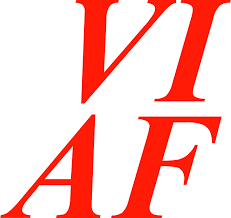
Bernard AVRIL
Présentation
Dr. Bernard Avril’s academic background is in marine biogeochemistry, bio-optics and ecology, and his professional expertise ranges from natural sciences to transitions towards sustainability and from research management and evaluation to strategic foresight and capacity development. He is an experienced research manager / strategy advisor, integrated water, marine, sustainability research, education & outreach independent consultant in marine and sustainability research and education, with a strong background in international, integrated and complex science management in water, marine and sustainability research fields, a result-driven approach, more than 20 years of international work experience, and international mobility. He recently worked with the Integrated Marine Biogeochemistry and Ecosystem Research (IMBER, www.imber.info) project in the IMBER International Project Office (IPO) hosted by the Institute of Marine Research (IMR) in Bergen, Norway as IMBER Executive Officer / IMR senior researcher from 2012 to 2015. IMBER is an international project that aims to investigate the sensitivity of marine biogeochemical cycles and ecosystems to global change, on time scales ranging from years to decades. IMBER aims to provide a comprehensive understanding of, and accurate predictive capacity for ocean responses to accelerating global change and the consequent effects on the Earth System and human society. IMBER has been sponsored by the International Geosphere-Biosphere Programme (IGBP) and the Scientific Committee on Oceanic Research (SCOR). Before working with IMBER and IMR, Bernard was Science Officer / EUROCORES Coordinator for environmental sciences, geosciences and sustainability research at the European Science Foundation (ESF) in Strasbourg, France, where, among other activities, he coordinated the foresight initiative on the Responses to Environmental and Societal Challenges for our Unstable Earth (RESCUE, www.esf.org/rescue) and the publication of an ESF Science Policy Briefing on the “Impacts of Ocean Acidification” (see, www.esf.org/research-areas/life-earth-and-environmental-sciences/publications.html). Prior to that, he was the Deputy Executive Director for the Joint Global Ocean Flux Study (JGOFS, web archive at http://ijgofs.whoi.edu) at the JGOFS International Project Office, hosted at the University of Bergen, Norway. He was also the Assistant Executive Officer for the EU-funded Ocean Margin Exchange (OMEX) project, phase II, based at the University of Brussels, and a post-doctoral researcher and bio-optics/biogeochemistry lab. manager in the College of Marine Sciences, University of South Florida.



